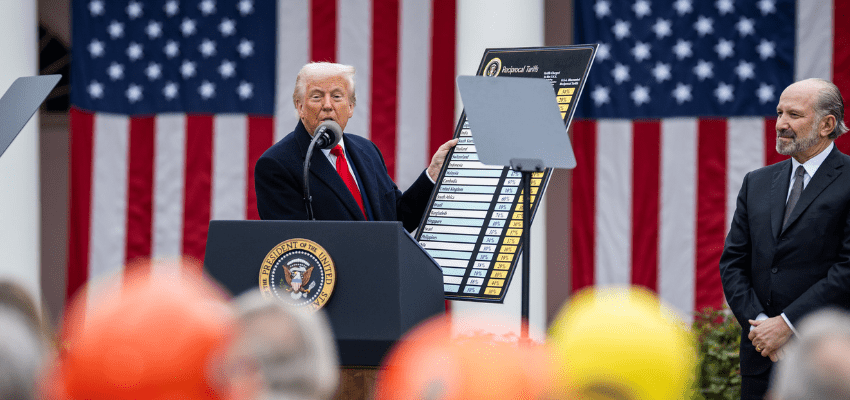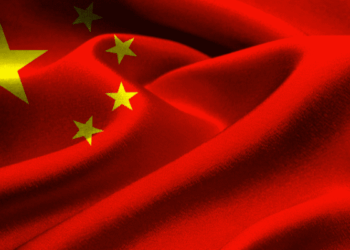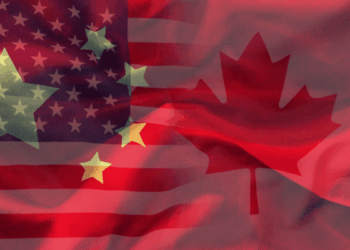This article originally appeared in the Financial Post. Below is an excerpt from the article.
By Jack Mintz, April 4, 2025
We now know what Donald Trump’s “Liberation Day” means: an American tariff wall. For the rest of the world, that means “Economic Disaster Day.” Once these tariffs become imbedded for any length of time, protected industries will lobby hard to keep them.
Liberation Day should not have been a surprise. As I wrote here Jan. 17, the Trumpians have three motivations for tariffs: raising revenue, driving manufacturing to the U.S. for economic and national security reasons, and correcting trade imbalances. All three motivations featured in Wednesday’s announcement.
At the Rose Garden event, Trump announced a uniform 10 per cent tariff rate on imported goods, a 25 per cent tariff on imported automobiles, and reciprocal tariffs that are one-half of “an effective tariff rate” that supposedly would drive the U.S. trade deficit with a country to zero. Canada is exempt from the uniform and reciprocal tariffs, which is at least something, but will be affected by levies on aluminum, steel, non-CUSMA automobiles and parts, energy and potash — with more possibly coming.
***TO READ THE FULL ARTICLE, VISIT THE FINANCIAL POST HERE***
Jack Mintz is the President’s Fellow at the University of Calgary’s school of public policy and a distinguished fellow at the Macdonald-Laurier Institute.
The author of this piece has worked independently and is solely responsible for the views presented here. The opinions are not necessarily those of the Macdonald-Laurier Institute, its directors or supporters. The Macdonald-Laurier Institute is non-partisan and neither endorses nor supports candidates or political parties. We encourage our senior fellows to comment on public policy issues, including during election campaigns, but the publication of such expert commentary should not be confused with the institute taking a position for or against any party or candidate.








